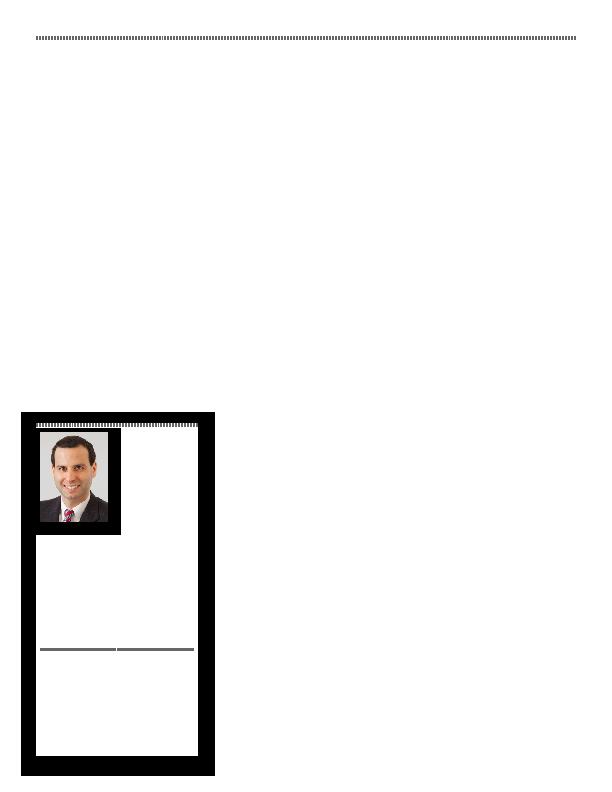
Obama Era 80/20 Rule for Tipped Employees
zations across the country continue to
fight for higher wages, the United States
Department of Labor (DOL) has provided
new guidance on what is commonly
referred to as the "80/20 Rule"
the DOL issued Opinion Letter FLSA
2018-27 rolling back the Obama era's
enforcement of the 80/20 Rule. The new
rule eases restrictions on an employer's
use of what is known as the "tip credit"
and has vast implications for employers
of the millions of tipped employees
throughout the United States who are paid
the minimum wage.
mandates that non-exempt employees be
paid at least the hourly minimum wage
(the federal minimum wage is currently
$7.25 per hour) for all hours worked.
Some states also have minimum wage
laws which provide greater employee
protections than federal law. However, a
majority of states have a special, lower
minimum wage, which an employer
can pay an employee who receives tips.
A tipped employee is defined as an
employee who works in an occupation
in which he or she "customarily and
regularly receives more than $30 a
month in tips." 29 U.S.C. § 203(t). Many
states allow an employer to pay a lower
service rate to tipped employees, such as
servers and bussers, and to take a "tip
credit" equal to the difference between
the service rate paid and the state's basic
minimum wage.
For example, in Massachusetts, the
basic minimum wage is currently $12 per
hour, but tipped employees can be paid
a service rate of $4.35 per hour, so long
as the employee is informed of the law
and the sum of the service rate and tips
received by the employee equal or exceed
the basic minimum wage.
$7.65 per hour toward its minimum wage
obligation for tipped employees. If the
combined service rate and tips received
by an employee do not equal at least
the basic minimum wage for all hours
worked, the employer must make up the
difference. However, service employees
generally receive tips well in excess of
the basic minimum wage. In fact, in some
states where the legislature has attempted
to raise or eliminate the service rate,
proactively lobbied against the change,
concerned that customers would stop
tipping, resulting in a net decrease in
take home pay.
amounts (the federal tip credit is currently
$5.12 per hour), while the remaining
seven states require employers to pay
tipped employees the full state basic
minimum wage before tips.
30d00(f) of the DOL's internal Field
Operations Handbook, acted as a limit
on the use of the lower service rate.
The 80/20 Rule stated that no tip credit
could be taken on "related duties" where
a tipped employee spent more than 20
percent of working time performing duties
related to the tipped occupation, but not
directly producing tips, such as cleaning
and setting tables, rolling silverware,
making coffee, etc.
requiring employers defending wage
claims to take on the nearly impossible
task of attempting to recreate, minute
by minute, the activities performed by
tipped employees, separating them into
"related" and "un-related" duties. This
was further complicated because the DOL
offered little guidance on what duties were
"related" versus "un-related" to a tip-
producing occupation, making it difficult
for an employer to determine whether it
complied with the law. For example, if
a server performed cleaning duties after
guests finished dining, such as sweeping
and mopping floors, vacuuming the
carpet or tidying up a server station, were
those duties "related" to the server's tip
Friedmann LLP. Robert practices in the firm's
litigation group with a primary focus in the
areas of business, employment and real estate
litigation. In addition, he works with employers
to develop and implement employee handbooks,
policies and procedures.
92 State Street
Boston, Massachusetts 02109
rflawyers.com